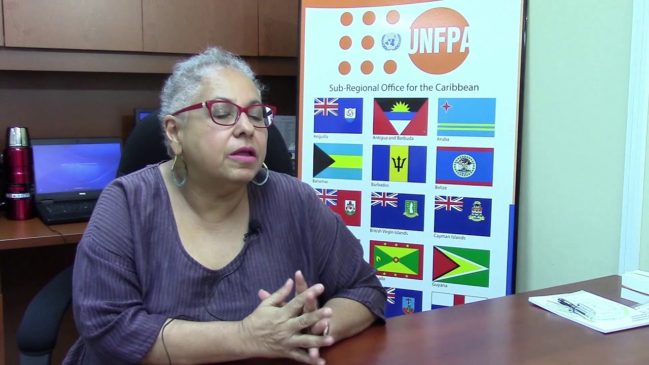
A senior United Nations Fund for Population Activities (UNFPA) official Wednesday said that there’s a growing problem of gender based violence in Guyana, Jamaica and Trinidad and Tobago.
According to a CMC report, UNFPA Caribbean Director, Alison Drayton, who is attending the Nairobi Summit on the International Conference on Population and Development (ICPD25), said that there’s need for different strategies to counter this practice in the Caribbean region.
Drayton said gender-based violence has harmful and lasting consequences for victims, families, communities and nations, adding “the realisation of this increase is starting to change perceptions of the need to look at the region in a different way”.
The UNFPA Caribbean Director, who was speaking on the sidelines of the summit, said “it’s an uphill battle.
Gender based violence is one of five themes of the Nairobi Summit, which has been convened to mobilize the political will and financial commitments urgently needed to finally and fully implement the ICPD Programme of Action.
These commitments centre on achieving zero unmet need for family planning information and services, zero preventable maternal deaths, and zero sexual and gender-based violence and harmful practices against women and girls.
Research findings released at the conference on Tuesday revealed that ending gender-based violence in 132 priority countries will require an investment of US$42 billion dollars over the next 10 years, CMC reported.
The organisers said that the funding would go towards programmes that provide psychosocial assistance, medical treatment and rape kits to survivors. It would also fund the promotion of the right of all women and girls to live free of violence and abuse.
The study was conducted by the UNFPA and the Johns Hopkins University in collaboration with Victoria, the University of Washington and Avenir, CMC reported.
Gender-based violence includes physical, sexual, verbal, emotional, and psychological abuse, threats, coercion, and economic or educational deprivation. It is an issue faced by people all over the world, but women and girls are disproportionately harmed by this practice.
According to CMC, Kenya and Denmark as well as UNFPA, the United Nations sexual and reproductive health agency, have organised this high-level political summit, which is being attended by a record 11, 500 participants from over 150 countries. They include representatives from member states, local governments, youth networks, civil society organisations, private sector partners and academics, CMC reported.



